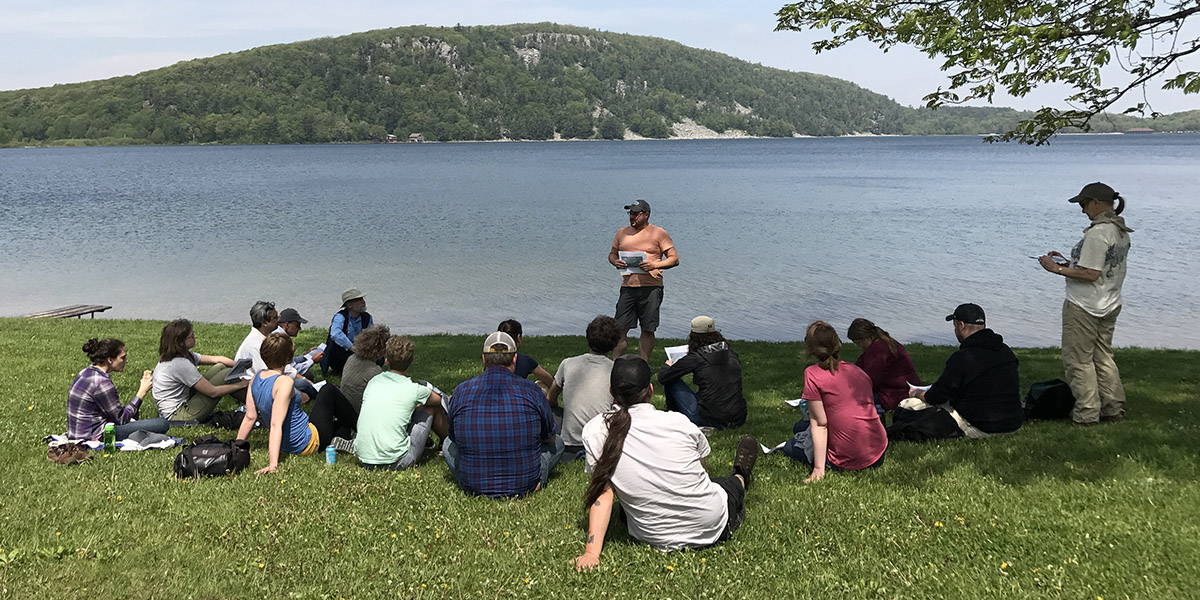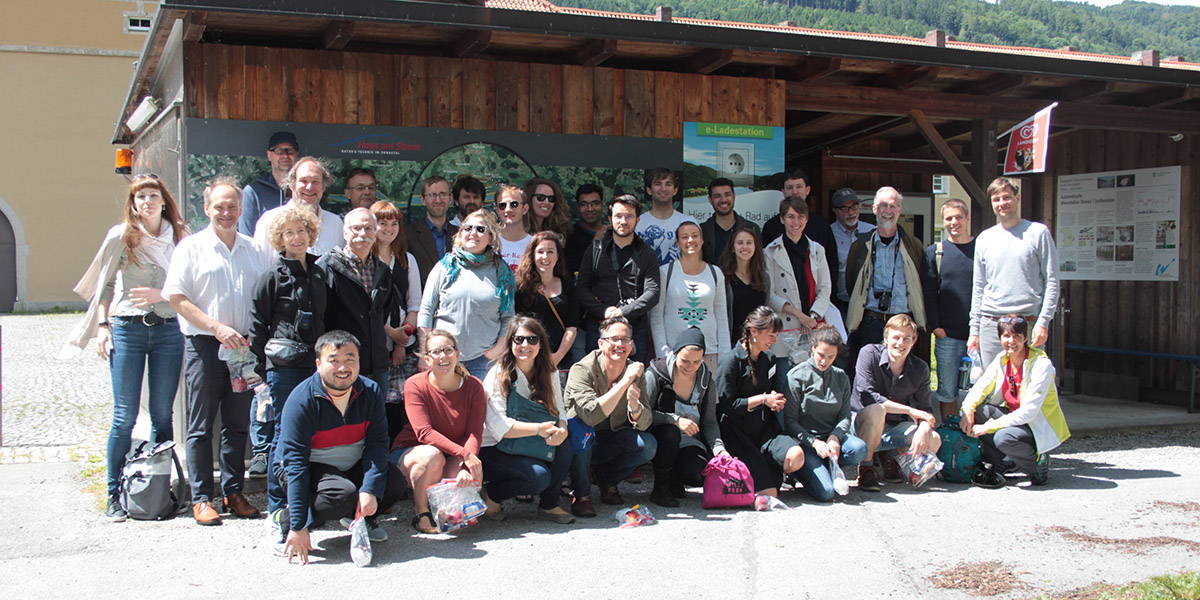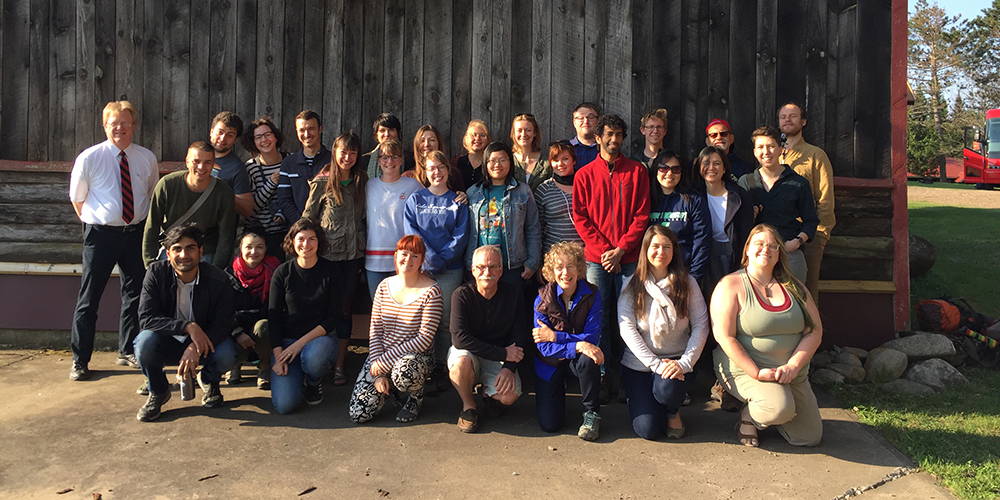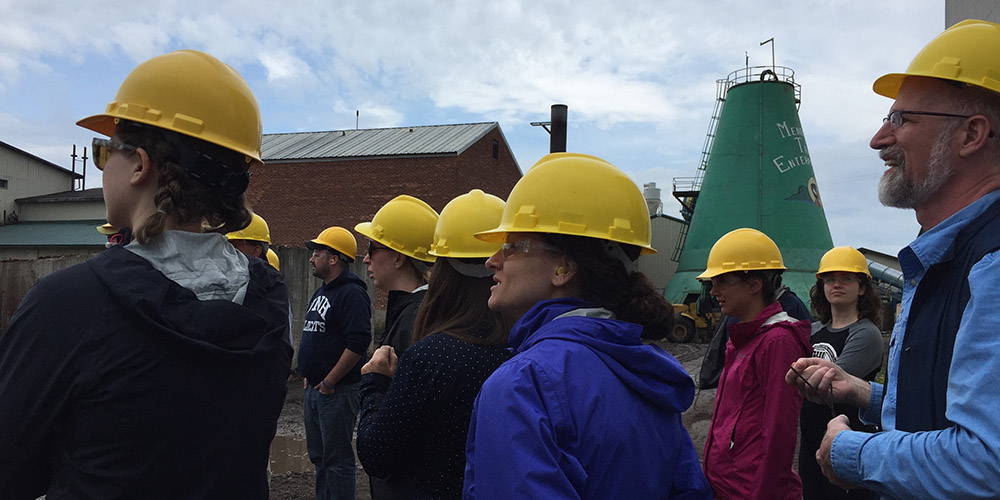The Center for Culture, History, and Environment (CHE) welcomes graduate, faculty, academic staff, and community associates from a wide array of (natural- and/or human-focused) intellectual backgrounds (e.g., history, sociology, landscape architecture, English literature, geography, anthropology, botany, limnology, etc.).
Although most CHE associates are firmly grounded in one or more disciplinary traditions, we are all persuaded that no one discipline by itself can hope to solve the myriad of puzzles regarding how and why people relate to, use, change, and value the natural environment.





CHE provides opportunities for associates to join in examining and exploring common interests related to understanding human dimensions of environmental change. In doing so, CHE associates expand their knowledge and find a home within CHE’s community of supportive and like-minded friends and colleagues.
CHE associates are linked by their shared intellectual passions for interdisciplinary environmental knowledge and research. If this sounds like the kind of community you’re seeking, we invite you to apply to become a CHE associate!
Become a CHE Associate
This is an accordion element with a series of buttons that open and close related content panels.
Graduate Associates
All graduate students who have research, teaching, or outreach interests that address the themes of culture, history, and/or environment are eligible to apply to become a CHE graduate associate. Likewise, we invite you to consider applying for a CHE graduate program.
Students enrolled in a CHE graduate program automatically become a CHE graduate associate.
CHE hosts many events that are developed and implemented by graduate students working with faculty, including an annual Graduate Student Symposium and Place-Based Workshop. In addition to the active schedule of events, CHE graduate associates organize independent reading groups, writing workshops, research presentations, field trips, and social events. Becoming a graduate student associate means joining a creative intellectual community dedicated to exploring the changing relationships of people and the environment over time.
Benefits of Becoming a CHE Graduate Associate
- Eligibility to apply for CHE graduate research and travel awards
- Access to the CHE lounge and conference room (Science Hall Room 280)
- Graduate student representation on CHE’s steering committee, the governing body of the center
- Access to funds for CHE programming organized by and for CHE graduate associates
- Eligibility to apply for funding
- Receive The CHE Weekly Digest, which features information about new and noteworthy topics relevant to CHE’s mission
Faculty or Academic Staff Associates
CHE’s faculty and academic staff associates come from a range of departments at UW-Madison. CHE’s faculty and academic staff associates share a commitment to understanding environmental issues of the past and present from disciplinary perspectives beyond their own.
CHE welcomes applications from faculty or academic staff who teach a course with content that significantly addresses themes of culture, history, and/or environment, conduct research related to these themes, and/or can otherwise demonstrate an intellectual/pedagogical commitment to the center’s aims.
Benefits of Becoming a CHE Faculty or Academic Staff Associate
- Building connections across UW-Madison’s campus by taking part in an exciting multidisciplinary community dedicated to exploring humanistic and social dimensions of environmental issues over time
- Eligibility for nomination to serve on CHE’s steering committee, the governing body of the center
- Eligibility to apply for funding
- Opportunities to present during CHE programming
- Access to the CHE lounge and conference room (Science Hall Room 280)
- Receive The CHE Weekly Digest, which features information about new and noteworthy topics relevant to CHE’s mission
Community Associates
CHE community associate status is open to anyone in the campus/Madison community whose work and interests address environmental questions relating to culture and/or history.
Benefits of Becoming a Community Associate
- Opportunities to participate in CHE activities and events
- Receive The CHE Weekly Digest, which features information about new and noteworthy topics relevant to CHE’s mission